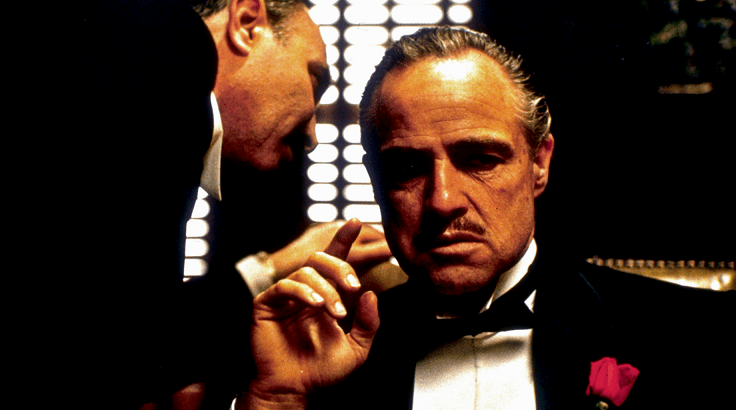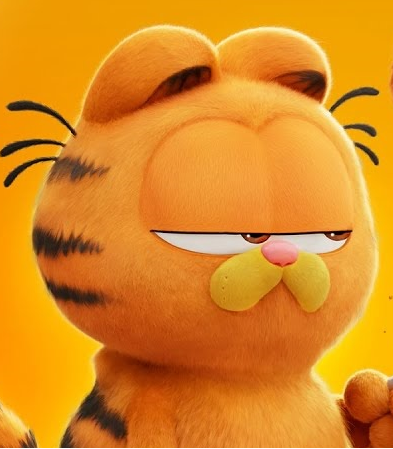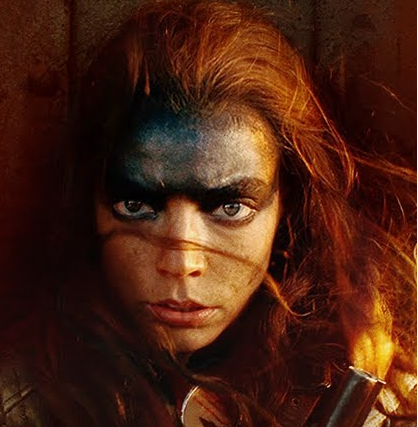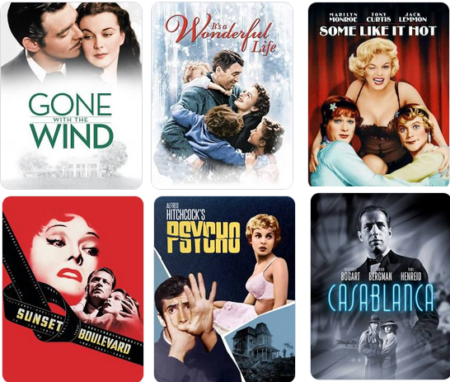In the vast world of cinema, few films hold the same timeless allure and magnetic appeal as “The Godfather.” Since its release in 1972, this iconic masterpiece has captured the hearts and minds of audiences across generations. From its gripping storyline to its unforgettable characters, “The Godfather” has cemented its place in the annals of cinematic history. But with such a complex and intricate narrative, it’s only natural for viewers to be left with burning questions.
If you’ve ever pondered the enigmatic depths of Don Vito Corleone’s mind or wondered about the fate of Michael Corleone, then you’re in luck! In this highly anticipated blog post, we delve into the depths of “The Godfather” universe to answer all your burning movie questions. Whether you’re a die-hard fan or a curious newcomer, prepare to embark on a riveting journey through the shadows of organized crime, family loyalty, and the intricate machinations of power.
Table of Contents
From the very first moment the orchestral score swells and Marlon Brando delivers his iconic line, “I’m gonna make him an offer he can’t refuse,” the audience is immediately captivated. The Godfather’s grip tightens, pulling us into a world of intrigue, violence, and moral complexity.

Why does everyone love The Godfather? Why do people idealize real-life criminals and organized crime?
One of the reasons why “The Godfather” has garnered such a massive following is its portrayal of complex characters and their motivations. The film delves into the psyche of the Corleone family, showcasing their struggles, ambitions, and conflicts. Don Vito Corleone, played masterfully by Marlon Brando, is a character who commands respect and admiration despite being involved in criminal activities. His charisma and sense of honor make him an intriguing figure.
Additionally, “The Godfather” offers a glimpse into the world of organized crime. While it is essential to distinguish between fiction and reality, there is an undeniable fascination with this dark underbelly of society. The film presents a romanticized version of organized crime that captivates audiences. It explores themes such as loyalty, power dynamics, and family bonds within the context of a criminal empire.
However, it’s crucial to remember that people’s fascination with “The Godfather” does not mean they condone or idealize real-life criminals or organized crime. Rather, it highlights our intrigue with morally complex characters and their intricate relationships.
Why is it called The Godfather? Is there any relation between the movie and real-life events or people?
The title “The Godfather” holds significant meaning within the context of the film. In Italian-American culture, the term “godfather” refers to a man who serves as a mentor or protector within a community. In this case, Don Vito Corleone embodies this role for his family and associates.
As for any relation between the movie and real-life events or people, while “The Godfather” draws inspiration from elements of organized crime history in America (such as the Italian-American Mafia), it is primarily a work of fiction. The characters and events depicted in the film are not direct representations of real individuals or specific incidents.

Is The Godfather worth watching now?
the godfather epic is the first part of the godfather trilogy. and Absolutely remains a timeless masterpiece that continues to captivate audiences decades after its release. Its compelling storytelling, impeccable performances, and thought-provoking themes make it a must-watch for any film enthusiast.
While the film is set in the 1940s and 1950s, its exploration of power dynamics, family loyalty, and moral dilemmas transcends time. The characters’ struggles and motivations are universal, making “The Godfather” relevant even in today’s context.
Is The Godfather a hit or a flop?
this movie is undoubtedly a monumental hit both critically and commercially. Upon its release in 1972, it received widespread acclaim from critics and audiences alike. It went on to win three Academy Awards, including Best Picture, solidifying its place as one of the greatest films ever made.
The film’s success can be attributed to its exceptional storytelling, remarkable performances, and Francis Ford Coppola’s masterful direction. It resonated with viewers on multiple levels – from its exploration of power dynamics to its examination of family bonds – creating an enduring legacy that still holds strong today.
Was The Godfather book better than the movie?
The Godfather book by Mario Puzo serves as the source material for the film adaptation. While both mediums offer unique experiences, it is challenging to definitively say whether one is better than the other.
The novel provides more extensive character development and delves deeper into certain plot points that couldn’t be fully explored within the constraints of a film. On the other hand, the film’s visual storytelling, iconic performances, and Francis Ford Coppola’s direction bring the story to life in a captivating way.
Ultimately, whether one prefers the book or the movie is subjective. Both are highly regarded and offer distinct perspectives on the Corleone family saga.
What are people’s thoughts on The Godfather? Why is it considered to be such a great movie?
this film has garnered widespread acclaim and is often hailed as one of the greatest films ever made. Its impact on popular culture cannot be overstated. There are several reasons why it is considered a cinematic masterpiece:
Firstly, “The Godfather” boasts an exceptional ensemble cast that delivers unforgettable performances. Marlon Brando’s portrayal of Don Vito Corleone is legendary, earning him an Academy Award for Best Actor. Al Pacino’s transformation from an innocent outsider to a ruthless leader as Michael Corleone is equally remarkable.
Secondly, Francis Ford Coppola’s direction brings Mario Puzo’s story to life with precision and artistry. The film’s pacing, cinematography, and use of music create an immersive experience that draws viewers into its world.
Furthermore, this movie explores timeless themes such as power, loyalty, betrayal, and the consequences of one’s choices. It delves into complex moral dilemmas faced by its characters and offers profound insights into human nature.
The film also showcases meticulous attention to detail in its production design and costumes, transporting audiences back in time to post-World War II America.

What happened to the cast of The Godfather?
The cast of went on to have illustrious careers following their involvement in this iconic film:
Marlon Brando continued to be a prominent figure in Hollywood, delivering memorable performances in films such as “Apocalypse Now” and “Last Tango in Paris.”
Al Pacino solidified his status as one of the greatest actors of his generation, starring in classics like “Scarface,” “Dog Day Afternoon,” and “Serpico.”
Robert Duvall, who portrayed Tom Hagen, the Corleone family’s consigliere, enjoyed a successful career with notable roles in films like “Apocalypse Now” and “The Apostle.”
Diane Keaton, who played Michael Corleone’s wife Kay Adams, went on to star in numerous acclaimed films such as Woody Allen’s “Annie Hall” and Nancy Meyers’ “Something’s Gotta Give.”
The legacy of “The Godfather” has undoubtedly contributed to the enduring success of its cast members.
Is The Godfather series worth considering as a comedy considering all that takes place?
While humor is not the primary focus of “The Godfather,” there are moments of dark comedy interspersed throughout the film. These instances provide brief respite from the intense drama and tension that permeate the story.
The comedic elements often arise from the absurdity or irony of certain situations. For example, Clemenza teaching Michael how to cook spaghetti sauce while discussing murder is a darkly humorous moment.
However, it is essential to note that this movie is primarily a crime drama rather than a comedy. Its overarching themes revolve around power struggles, loyalty, and morality within organized crime.
Why does the movie The Godfather (1972) have a cult following?
“The Godfather” (1972) has attained a cult following due to its impeccable storytelling, iconic performances, and its exploration of complex themes. The film’s enduring popularity can be attributed to several factors:
Firstly, the film’s portrayal of the Corleone family and their rise to power resonates with audiences. It delves into universal themes such as loyalty, family bonds, and the corrupting influence of power.
Secondly, “The Godfather” boasts a screenplay that is both gripping and thought-provoking. Mario Puzo’s adaptation of his own novel, combined with Francis Ford Coppola’s direction, creates a compelling narrative that keeps viewers on the edge of their seats.
Furthermore, the performances in the movie are nothing short of extraordinary. Marlon Brando’s portrayal of Don Vito Corleone is considered one of the greatest in cinematic history. Al Pacino’s transformation from an innocent outsider to a ruthless leader is equally mesmerizing.
The film’s visual style, atmospheric soundtrack, and attention to detail also contribute to its cult following. It transports viewers into a meticulously crafted world that feels both authentic and immersive.
What parts of The Godfather were not in the book?
While “The Godfather” movie remains largely faithful to Mario Puzo’s novel, there are some notable differences:
In the book version of “The Godfather,” Lucy Mancini (Sonny Corleone’s mistress) plays a more significant role than she does in the film. Her storyline explores her relationship with Sonny and her subsequent involvement with other characters.
The character Johnny Fontane (played by Al Martino) also has more extensive development in the book. His struggles as an aspiring singer and his connection to the Corleone family are explored in greater detail.
Additionally, the novel delves deeper into the history and background of various characters, providing more context and insight into their motivations.
While these differences exist, both the book and the film offer compelling narratives that have captivated audiences in their respective mediums.

Would you have liked The Godfather as a film noir?
“The Godfather” as a film noir would undoubtedly offer a unique interpretation of the story. Film noir is characterized by its dark and cynical themes, morally ambiguous characters, and atmospheric visual style.
While “The Godfather” shares some thematic elements with film noir (such as crime, corruption, and moral ambiguity), it ultimately takes a different approach. The film’s epic scope, rich character development, and exploration of family dynamics set it apart from traditional film noir.
However, reimagining “The Godfather” as a film noir could provide an intriguing twist on the story. It would emphasize the darker aspects of organized crime and further explore the moral dilemmas faced by its characters.

What was the movie The Godfather about? Was it based on true events?
“The Godfather” revolves around the Corleone family – an Italian-American crime syndicate led by Don Vito Corleone. The story primarily focuses on Vito’s youngest son, Michael Corleone, who becomes increasingly involved in his family’s criminal activities.
The film explores themes such as power struggles within organized crime families, loyalty to one’s family versus personal morality, and the consequences of choices made in pursuit of power.
While movie draws inspiration from elements of organized crime history in America (such as the Italian-American Mafia), it is important to note that it is primarily a work of fiction. The characters and events depicted in the film are not direct representations of real individuals or specific incidents.
What is it about The Godfather?
this movie is about much more than just organized crime. It delves into the complexities of human nature, exploring themes such as power, loyalty, family bonds, and the corrupting influence of ambition.
The film offers a nuanced portrayal of its characters, showcasing their flaws and vulnerabilities alongside their strengths. It delves into the intricate relationships within the Corleone family and how these dynamics shape their decisions.
Furthermore, “The Godfather” presents a compelling narrative that keeps viewers engaged from start to finish. Its exploration of moral dilemmas and the consequences of one’s choices provokes thought and discussion long after the credits roll.
Ultimately, “The Godfather” is a cinematic masterpiece that continues to captivate audiences with its timeless storytelling, unforgettable performances, and exploration of complex themes.
https://7artmovie.com/the-godfather-all-answered-part-2/
https://7artmovie.com/the-godfather-always-one-of-the-best-movies/
https://7artmovie.com/the-godfather-review-2/
https://www.imdb.com/title/tt0068646/





